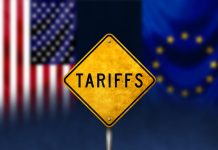This year, the novel coronavirus has shattered economies around the globe. No country was left untouched, with almost a million deaths by mid-September. South Africa has registered 651,521 cases and 15,641 deaths as of this writing. The damage to the economy is substantial and lasting.
Sadly, vaccines are still being developed, so the only tool the government has is its lockdown measures. Restriction of movement reduces contagion, but it disrupts social and economic ties. Consumers are stuck in their homes, and many people lose jobs. They have to adapt to the new reality and find opportunities for remote work. Here is an overview of the situation at present.
Severe Economic Shocks
Many experts agree that the economic effects of the lockdown are larger than the demographic ones. This may sound cynical, but it will take years for the economy to fully recover. The negative shock of the outbreak triggered immediate shrinking of business activities.
The South African government did not hesitate to impose lockdown measures. President Ramaphosa has referred to the crisis as a “post-war situation” marking a watershed moment. The country may use the shock as the impetus for transitioning to a more viable economic model and eliminating all remnants of apartheid. Still, losses are growing relentlessly, and the government does not seem to be doing enough.
The crisis has affected the economic structure from top to bottom. Across the industries, the damage has been uneven. The least affected sectors are those linked to supply of essentials: healthcare, food and agriculture, finance and insurance, and telecommunication. Low-income consumers were hit particularly badly, especially those employed in the following industries:
- tourism;
- accommodation;
- catering;
- services;
- transport;
- mining;
Lay-offs and New Opportunities
As the economic activity was halted globally, millions of people became jobless. The shutdown of the local economy has resulted in dozens of thousands of lay-offs. The unemployment situation was already gloomy before 2020, as only two-thirds of residents were employed. The government launched an emergency unemployment benefit for roughly 6 million people.
In these desperate times, consumers are looking for alternative sources of income. E-commerce and online trading have been developing at a rapid pace. Lockdowns have spurred digitization all across Africa. In 2019, South Africa was the continental leader in terms of daily Forex volumes. This year, the number of online traders has ballooned.
The region is attractive to brokerage brands from abroad. The local industry is fairly regulated. Every Forex broker has to be licensed by the FCSA. Global brands like ForexTime are also authorized and monitored by foreign watchdog organizations like the CySEC.

A trusted Forex broker provides free software and educational resources, so clients can learn safely. The range of tradable instruments includes currency pairs, stocks, spot gold and silver, and derivatives like CFDs. Everything is managed via platforms or apps. This is a perfect solution for someone stuck at home, and traders can start new careers.
Inadequate Reaction by the Government
The initial support package worth $26 billion equalled a tenth of the national GDP. By mid-2021, the package is projected to reach $46 billion. In September 2020, South Africa’s auditor general said that some money may have been mismanaged and paid to the wrong beneficiaries. There have been reports of questionable agreements between state officials and providers of medical equipment or food aid.
A Look Ahead
Projections of recovery include different scenarios. The most optimistic and quickest scenario includes a GDP decline of 5% by the end of the year. This would have been regarded as disastrous in 2019. Now, it is the most positive view. The other — “Slow” and “Long” scenarios — are even more menacing.
A new report by UNDP and other UN agencies projects a plunge of 8%. The experts suggest that recovery may take five years. Over half of households that are now out of work may become impoverished. Generally, a third of all households may leave the middle class.
The SA-TIED working paper “Impact of Covid-19 on the South African economy: An initial analysis” highlights two key conclusions:
- the government’s transfer programs to low-income households are providing the most vulnerable demographics with crucial support, and they should be continued;
- it is vital to coordinate economic policies and epidemiological measures to mitigate the economic implications.
The Bottom Line
COVID-19 has had a devastating effect on the South African economy. To contain the virus and rebuild the economy, the government must take decisive measures today. Sadly, the response has been inadequate. The efforts to reduce the damage are hampered by corruption. Massive lay-offs, malnutrition and inadequacy of the healthcare system mean that recovery will be long and painful.




































